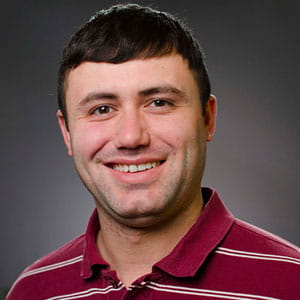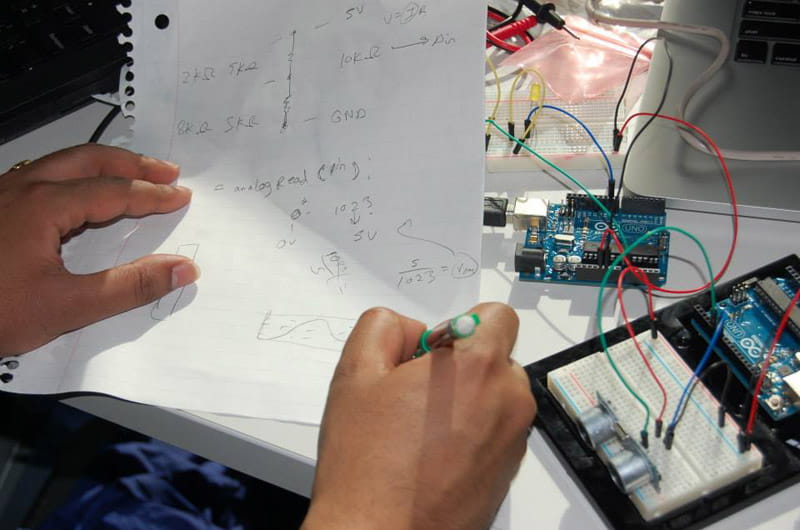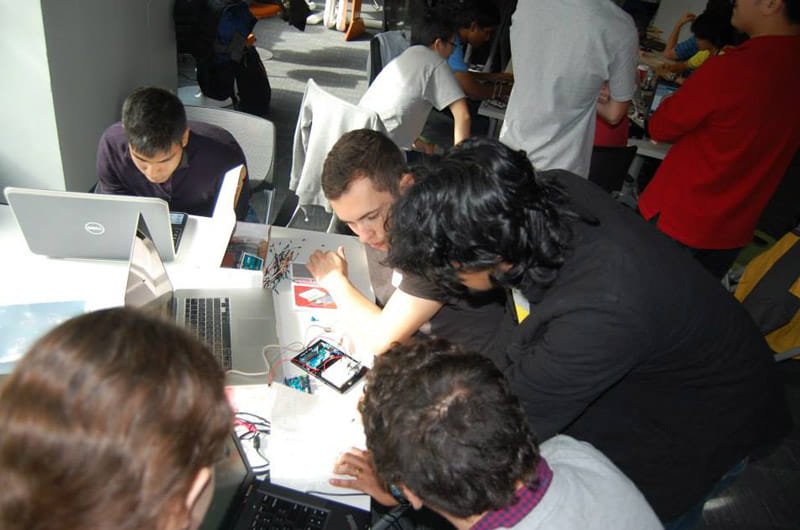Drexel Hosts, Wins Hardware Hackathon
 By Frank Otto
By Frank Otto

A portable shower, vibrating dog collar and light painter were all products of a hackathon hosted earlier this month by the Drexel Institute of Electronics Engineers.
But ultimately, a drone controlled by a person with Google Glass-wearable computers devised by a team of Drexel students took the glory.
Dragon Hacks 2015 set itself apart from other hackathons, which are competitions that pit teams against each other to create new projects or complete tasks over a set amount of time. Usually, computer software is the focus of the event, but not this time.
“The goal is to use hardware to create an innovative and awesome project in 24 hours,” said Savannah Lee, president of the Drexel Institute of Electronics Engineers (IEEE), who was one of Dragon Hacks’ main organizers. “This makes our hackathon unique, with it being many hackers’ first time touching hardware.”

Stretching between Jan. 10 and 11 in the ExCite Center’s APP Lab, more than 120 participants from multiple higher learning institutions used things like the video game system Occulus Rift, a Wifi Pineapple network auditing tool, an Xbox Kinect and various other pieces of computer equipment to create 30 different projects.
Gary Grossi, another of the main organizers with the IEEE who studies computer engineering, was impressed with what some of the teams were creating.
“There was one group that had been working on a particularly interesting project, an electronically driven portable shower,” he said. “I briefly spoke with them about what they planned to make at the beginning of the hackathon, but seeing the project completed and demonstrated in less than 24 hours was incredible. It’s the type of idea that people go to hackathons to see and make.”
The Drexel team that won constructed a “quadcopter,” essentially a helicopter-like drone held aloft by four rotors that could be controlled by hand motions from a person wearing Google Glass.
Lee said the winners received Android tablets and medals from Major League Hacking.
Another team which featured one Drexel student took third place by constructing a “wearable ultrasonic obstacle detector.” The product is designed to alert someone who is visually impaired when they’re approaching an obstacle by the activation of a servo, which gives a tactile sensation.
The second place team created something called “The Light Painter’s Pallette” to improve upon existing, digital light painting practices.
Although the competition was compressed into a short, stressful period, it was less than cut-throat.
“There is always a bit of intensity at hackathons given the amount of work being done in such a short amount of time, but the interaction between participants, even those of different teams, was very friendly,” Grossi said.
With so much talent gathered together, hackathons can serve as recruitment events for some technical companies, according to Lee.
“Addteq was there as well as Intel Mashery,” she said. “At larger hackathons it is not uncommon to see booths for interviews.”
The experience and what is learned at events like Dragon Hacks 2015 can be invaluable, Lee said.
“It’s a great experience to talk about in interviews. Companies love asking about projects that are done outside of school,” Lee said. “Participating in hackathons shows a student’s passion for engineering, dedication, their ability to work in a team and under pressure, be flexible problem solvers and, of course, their programming skills.”
Drexel News is produced by
University Marketing and Communications.
